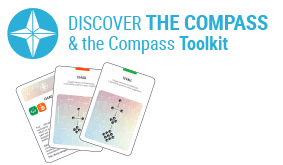Open Educational Practices
/UNESCO, EFQUEL and several other partners launched a new initiative, called Open Educational Quality Initiative and highlights the importance of Open Educational Practices. This concept moves beyond the usual term of Open Educational Resources that mainly focussed on making content accessible. The new term has a broader focus on the quality of education and training and innovate educational practices on institutional, professional and individual level. DELTA participated recently in the European Consultative Group at the Innovation Forum in Lisbon, Portugal in order to give feedback to this interesting project.
DELTA’s main reflections after getting to know the project are the following:
– OEP finally moves beyond mere content, and focuses more on process, activity and the use of it. Parallel there are more references towards participatory notions such as collaboration, sharing, critical reflection, and hence could become a transformator for innovative educational practice.
– The iniative is tacking stock of more than 60 OEP practices and will derive a specific model out of it, named the OEP Cube Model (see picture below). The cube consists out of different strategic axes and provides you with a framework to analyse open educational practices. This instrument can be used in a variety of ways (self-assessment, benchmarking, classification, …) but most important of all is the fact that it leads to good practice in the use of OER.
– Although the international focus is mainly European, there is a need for a more global approach. International partners such as UNESCO and the Common Wealth of Learning could take this one step further. Also the in-house experience of DELTA / ITC-ILO could generate interesting practices in the scope of the Lifelong E-Learning course and feed the global dimension of this interesting project.








